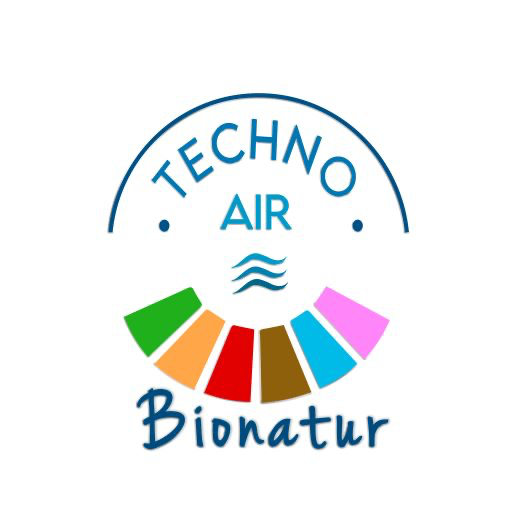VOCs
Volatile Organic Compounds (VOCs) are produced in many industrial fields, generally forming part of air fresheners, lacquers, paints and solvents. Among the most common we find perchloroethylene, ethyl acetate, toluene, xylene or chlorobenzene.
What are VOCs?
Volatile Organic Compounds (VOCs) are chemical substances that contain carbon and that can be easily converted into vapours or gases. Along with carbon they contain other elements such as hydrogen, oxygen, fluorine, chlorine, bromine, sulphur or nitrogen.
VOCs are released in many processes such as applying paints and lacquers, use of solvents, manufacture of steel, smelting scrap, manufacture of synthetic materials (plastics, carpets, etc.), burning fuel such as petrol, using air fresheners, degreasing parts, dry cleaning clothes and many other activities that are carried out both on an industrial level and in our homes.
Some of the most used VOCs are: formaldehyde, chlorobenzene, benzene, toluene, xylene, acetone, perchloroethylene or ethyl acetate.
How do VOCs affect us?
Many volatile organic compounds are dangerous air pollutants that can affect both people’s health and the environment.
With regards to their hazardousness VOCs can be classified into three groups:
- Compounds that are extremely hazardous to health: benzene, vinyl chloride and 1,2 dichloroethylene.
- Class A compounds: those that can cause significant harm to the environment, such as: acetaldehyde, aniline, trichloroethylene, etc.
- Class B compounds: these have less impact on the environment. Acetone and ethanol belong to this group, among others.
The significance of VOCs lies in their ability to destroy the ozone layer.
The WHO (World Health Organisation) lists the development of several diseases, such as cancer in the respiratory system in these type of pollutants.
Given the importance of these pollutants, several European directives and their related transpositions through laws at a national level, govern the emissions of these pollutants.
How to prevent VOC emissions in industry?
Bionatur has the integral solution for removing all VOCs in industry, with the most economical solution on the market and with a total guarantee on results.
This is achieved thanks to the Bionatur range of mobile filters and absorbents for VOCs that make it possible to remove 100% of the VOCs in the emissions.
Bionatur filters for VOCs are offered on a rental system and therefore without any need for investment and they do not consume gas, electricity or water and are the most economical solution on the market.
The Bionatur integral solution works for both small flows (100 m3/h) and large flows (500,000 m3/h)
The family of Bionatur mobile filters is adapted to different sizes for the needs of each client, using the modular concept, practice and very effective, making the change possible in only 20 minutes.
The Bionatur integral solution includes carrying out all the installation, from capturing the gases at the emission source to their journey to the Bionatur filters, including breathing equipment, particulate filters, measuring equipment and all the accessories that may be needed and supplies the filters and absorbents for removing all pollutants (link to filters).
This solution will remove the emission of pollutants into the atmosphere and comply with the current regulations, thereby preventing possible sanctions or even company closure.
In addition to treating the emission of gases from continuous processes, if the company is subject to production stoppages and as a result to irregular VOC emissions, the Bionatur filters are also the ideal solution. They adapt to a mass load of emissions at any time automatically and instantaneously without any type of adjustment being necessary. They do not require start-up or shut-down procedures nor are there any elements exposed to preventive maintenance nor unwanted technical stoppages.
Bionatur has multiple systems in operation and many satisfied clients. They are of all sizes and pollutant concentrations. From small 100 m3/hour up to systems of more than 500,000 m3/h.
To guarantee the best results, Bionatur has a modern laboratory for applications, where our technicians analyse hundreds of pollutants and their behaviour in different operational conditions to ensure the most optimum solution at all times for each client.
Our experience enables us to guarantee success with a large variety of different VOCs, such as for example toluene, xylene, ethyl acetate, perchloroethylene, trichloroethylene, etc.
The excellent results from the Bionatur integral solution have been certified by the leading companies in certification such as SGS, TUV Theiland, DEKRA, EUROCONTROL, AUDEMA, etc. and by the most prestigious research institutes such as the Higher Council for Scientific Research (CSIC), the Ceramic Technology Institute (ITC) and by CIEMAT (Centre for Energy, Environmental and Technological Research).

